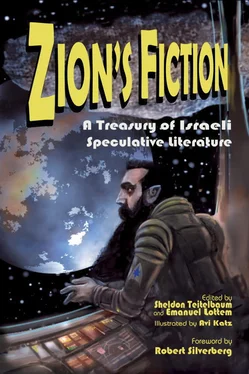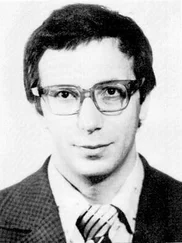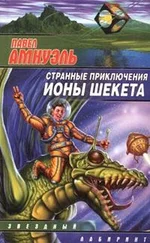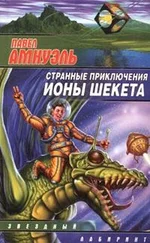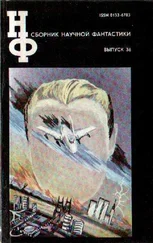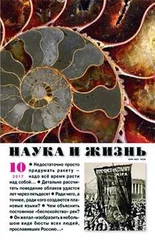When they made love, David’s body glowed like ice, like frozen steel, the bluish petals of the wound-flower over his heart opening wide to disclose the dark seed of the bullet inside. On the hottest nights when Mor’s side of the bed was sticky with sweat, his body was cool and sleek. He was indefatigable, he was obliging, they would have sex for hours, until Mor would finally doze off and wake up screaming.
Once she asked him whether deaths dreamed. He said no. Mor was sure he lied. But it was true he never slept, even though he sometimes pretended.
They were to have a party for her friends (all of whom loved David). She sent him out with a grocery list, having decided to cook herself. The idea of letting other people eat food prepared by a death made her queasy. She was chopping lettuce when the knife slipped and bit deeply into her thumb. Mor watched dark drops of blood pool in the shallow cups of lettuce leaves. And then the bleeding stopped and the cut closed reluctantly like a disappointed mouth, the skin smoothing over, the pain receding—not into well-being but into a strange sort of numbness.
They had an Indian take-away for her party.
Once a week she goes shopping, and she always ends up with another colorful package among her drab plastic bags. She comes back home and tears the bright paper to reveal a miniature garment. The clothes are all in delicate colors: cream, lilac, forest green. Pink and blue are vulgar. She intends to give the child a unisex name, like her own, fit for either gender—or none.
Watching the TV, she takes out an armful of baby clothes and keeps on folding and unfolding them, stroking them with her fingertips, checking the zippers and the buttons, her eyes on the screen. She seldom takes out the same piece on two consecutive nights. The amount of baby clothes one can accumulate in two years is considerable.
The first time she saw her husband feed was on a bright and clear winter day. She had parked her car and was walking toward a campus gate when she heard a sharp crack, which, from her military training she recognized as a shot. People were running. A crowd was milling on the sidewalk. A man was being sick.
A boy lay among the parked cars, a gun by his side. The boy had no face.
The crowd buzzed with senseless words: “suicide,” “accident,” “terror.” Mor stared at the tip of her shoe, dark-stained by the puddle she stepped into. When she lifted her head she saw her husband standing by the body.
Mor did not call out to him because she knew that he was invisible to everybody else. In the cold sunshine his nude body glistened with metal-colored highlights. His arms and legs looked melted down. But the wound-flower on his left side was alive, its fleshly petals moving hungrily. When he knelt down and dipped his fingers in the boy’s blood, it flashed a deep crimson.
Mor was sitting in the university cafeteria, poking at her lasagna and wondering whether the cardboard taste was due to the new caterers or to her atrophying taste buds. She had become careless with her diet. Why not, since she was neither gaining nor losing any weight, no matter what she ate? But last night while she was mechanically putting potato chips in her mouth in front of the TV, one chip stuck to her palate. She took it out and discovered it was a piece of cellophane.
It was hot and muggy; the people in the courtyard were fanning themselves and wiping their foreheads. Her long-sleeved dress was spotless.
She sipped her coffee and had to look at the black liquid in her cup to make sure it was not water.
At least she no longer needed to fret about wrinkles and sun damage. Her face creams had been tossed into garbage, together with her tampons. Her gynecologist was concerned about amenorrhea and tried to send her to a round of tests. She did not go, of course. A death cannot die, nor can it procreate. And neither can a death’s wife.
Somebody plunked a tray bearing a Coke and a sandwich on her table. Irritated, Mor looked up and froze. The man standing in front of her was Daniel.
“May I?” he inquired, seating himself. This was the second shock. He was speaking Hebrew but with a slight Yiddish accent.
“What are you doing here?”
“Traveling,” he replied. “I’m retired, you know.”
“I should hope so!”
He lifted a conciliatory hand:
“I’m on your side!”
“It’ll be a sad day when I need you on my side!”
“You already do.” He examined his sandwich and bit off a neat semi-circle of bread and hummus. His teeth, Mor noticed, were big and yellow, as if he used to be a smoker. “Look, Hanna….”
“Don’t you dare call me that!”
“I gave you that name,” he said.
She stared at the table.
“You are like a child in a new school,” said Daniel. “All those secrets whispered behind your back, old alliances, old loves, old hates, and here you are, a newcomer, and nobody to explain the ground rules to you.”
“And you decided to be my guide out of the goodness of your heart, I suppose.”
He shrugged: “I do have a different perspective, you know. First, I’m very young. I still remember my mortal days.”
“Were you human once?” she asked, horrified.
“All of us were.”
Seeing her expression, he laughed.
“See? You didn’t even know that. Your husband is not being very informative, is he?”
“How do you become…. How do you become what you are?”
“All kinds of ways. Some of us just grow away from humankind until we discover our true vocation. It’s a gradual process, you see. Kids who play with guns and explosives, this sort of thing. Some hear the call but cannot make the crossover and remain stranded on your side, pathetic failures in their own eyes, never mind how many body bags they send to the morgue. Ted Bundy and such….”
“Ted Bundy,” she repeated numbly. “Serial killers.”
He airily waved his hand.
“Quite a lot of those. They sense the vacancies.”
“And the others?”
“Well, sometimes it is a sort of deathbed conversion, ecstatic experience, call it whatever you like. But it’s going out of fashion. Most people on deathbeds nowadays are drugged out of their senses. And then, of course, there are such as you.”
“Such as me?”
“Yes. Marrying into the tribe.”
“Are you suggesting I will become one of you?” Mor managed to keep her voice down only because she recognized a couple of her students at the next table.
“Your husband promised you immortality, didn’t he? Well, he did not lie, but neither did he speak the truth. Characteristic of him. You can only be truly immortal if you become a death yourself.”
“Never!” Mor cried and the girls at the next table glanced at her.
“What else will you do? Plenty of your new relations are in-laws, so to speak. Stefan, for example, and Victoria. You should talk to her, by the way; she is a relatively new bride.”
“Victoria? How can that be? Isn’t she Old Age?’
Daniel nodded and finished his Coke in a single gulp.
“Then how…. I mean, people have died of old age since the beginning of time.”
“Precisely. That’s the point. Deaths do not procreate, but they die.”
“How can a death die?”
“Never heard of John Donne?” asked Daniel smugly. “‘Death, thou shalt die.’ I thought you liked literature. Not Christian literature perhaps. In any case, a death can only be killed by another death, and that under very special conditions. That’s why we have rather mixed feelings about each other. We get together out of solidarity and even affection of sorts. There is a sense of fraternity after centuries of gossiping. But we also need to keep an eye on each other. Not that it always helps. Victoria’s predecessor was assassinated by Hunger and War, Ruth and Zoe, only they called themselves by different names then. We change names pretty often. I’m proud of my current choice. You’re the only one to appreciate its meaning, really. Dani-el: ‘God judged me.’”
Читать дальше
